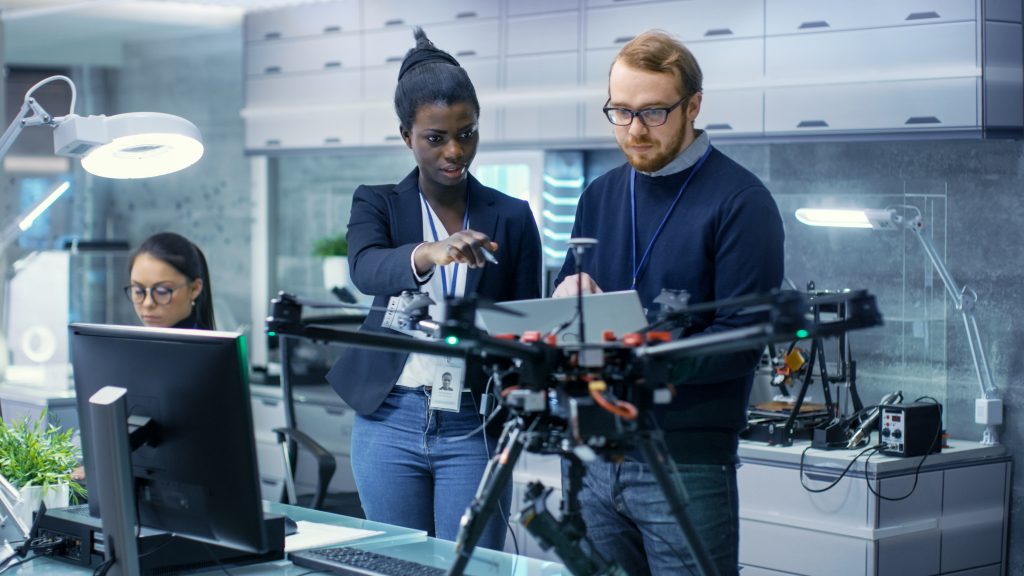
As the transportation sector faces labor shortages and challenges due to the retirement of Baby Boomers, demographic changes, labor market forces, and the growing need for interdisciplinary skillsets, more research is needed to identify gaps in the system. Strategies must be created in order to build and maintain a healthy and strong transportation workforce.
To build a foundation for a thriving workforce, Dr. Ruth Steiner, a professor in the Department of Urban and Regional Planning at the University of Florida, and her colleagues, embarked on a research project to do just that. Steiner and her team sought out to create a baseline understanding of how workforce development (WKF) in the Southeastern United States is defined. What are the challenges that need to be addressed? What is the current state of WKF development practice?
“Even before the COVID-19 pandemic, leaders in the transportation sector were concerned about the need to recruit, retain, and retrain the transportation workforce for the future,” Steiner said. “The aging of the workforce, retirement of the Baby Boomers, increasing use of technology and other ongoing changes mean that the transportation professional of the future will be different and need different skills than the current generation.”
Findings from the project titled Transportation Workforce Development for State DOTs to Address Congestion for the Southeast Region (Project C4) generated several recommendations in the areas of recruitment, academic preparation, continuing education/training, retention, business processes, and collaboration and coordination. These elements are expected to make up the framework for future transportation workforce development.
Recruitment was specifically aimed at the following: conducting activities earlier in the pre-professional education pipeline such as focusing on students in K-12; conducting recruitment outside traditional educational pathways such as computer science, business, and others; the importance of recruiting women and minorities to the transportation industry; rebranding what it means to work in the transportation industry and debunking misconceptions about the industry; and emulating the practices of the tech industry as this is a main competitor for talent in the transportation industry.
For the academic preparation topic, it was recommended to update the traditional university curriculum program to reflect those skills in high demand, and to create opportunities for interdisciplinary education and collaboration. Mentorships and internships were also endorsed, including working with community colleges and technical schools to combat the labor shortage facing the transportation industry.
Another recommended element within the framework is to improve training in technological skills. These skills include those in emerging technologies such as mobility as a service (MaaS), transportation systems management and operation (TSMO), automated vehicles, simulation, and drones with training offered as online courses either through asynchronous, on-demand offerings or synchronous webinars/workshops for additional reach.
To retain the workforce, the study recommends more flexible work arrangements, advocating for competitive salaries, especially for public sector transportation workers in the Southeast. The study also recommended the creation of regional key performance indicators to identify and improve on progress related to equity, diversity, and inclusion.
“This report will allow transportation professionals and researchers to consider how they might create a competitive work environment that support the needs of the next generation of transportation workers,” Steiner said.
And finally, the study recommends that STRIDE, the 2016 regional (Southeast) U.S. Department of Transportation (USDOT) University Transportation Center (UTC), initiate the process of communicating a clear, unified workforce development agenda in coordination with regional stakeholders. This can be done through a centralized clearinghouse where transportation workforce development resources would be housed, shared, and made available throughout the Southeastern region.
“One of the key takeaways from this report was that there are many, many avenues for intervention – some in the very near term and some on the horizon,” Steiner said.” This report, more than anything else, gives insight into how STRIDE and other partners in the region might begin to tackle the challenges facing the southeast transportation workforce.”
She added that one of the most effectual “low hanging fruits” from this project is to create one, centralized clearinghouse for transportation development resources within the region.
“We hope that this clearinghouse can work towards increasing collaboration among the region’s many stakeholders and streamline the communication of workforce development resources and best practices,” she said.
Currently, two additional projects have been developed to follow this one. The first one is led by Dr. Mehri Mohebbi of the University of Florida along with Dr. Dimitra Michalaka of The Citadel and Dr. Virginia Sisiopiku of the University of Alabama at Birmingham. Mohebbi’s project is looking to promote diversity, uplift equity, and enhance inclusion within the transportation workforce in the Southeastern United States. That project is titled A Framework to Promote Diversity and Inclusion in Workforce Development in Southeast States (Project E5).
The second project is led by Steiner, along with her collaborator from Tennessee Technological University, Dr. Steven Click. The project is titled A Centralized Clearinghouse for Transportation Workforce Development Resources for the Southeastern Region (Project D6). The project will work from the findings of STRIDE Project C4, which previously defined the prevailing challenges facing the transportation workforce. In Project D6, the intention is to provide a repository or a single point of available resources, so that STRIDE can improve coordination among the diverse workforce development providers and users within the Southeastern region.
For more information, contact Dr. Ruth Steiner at rsteiner@ufl.edu.